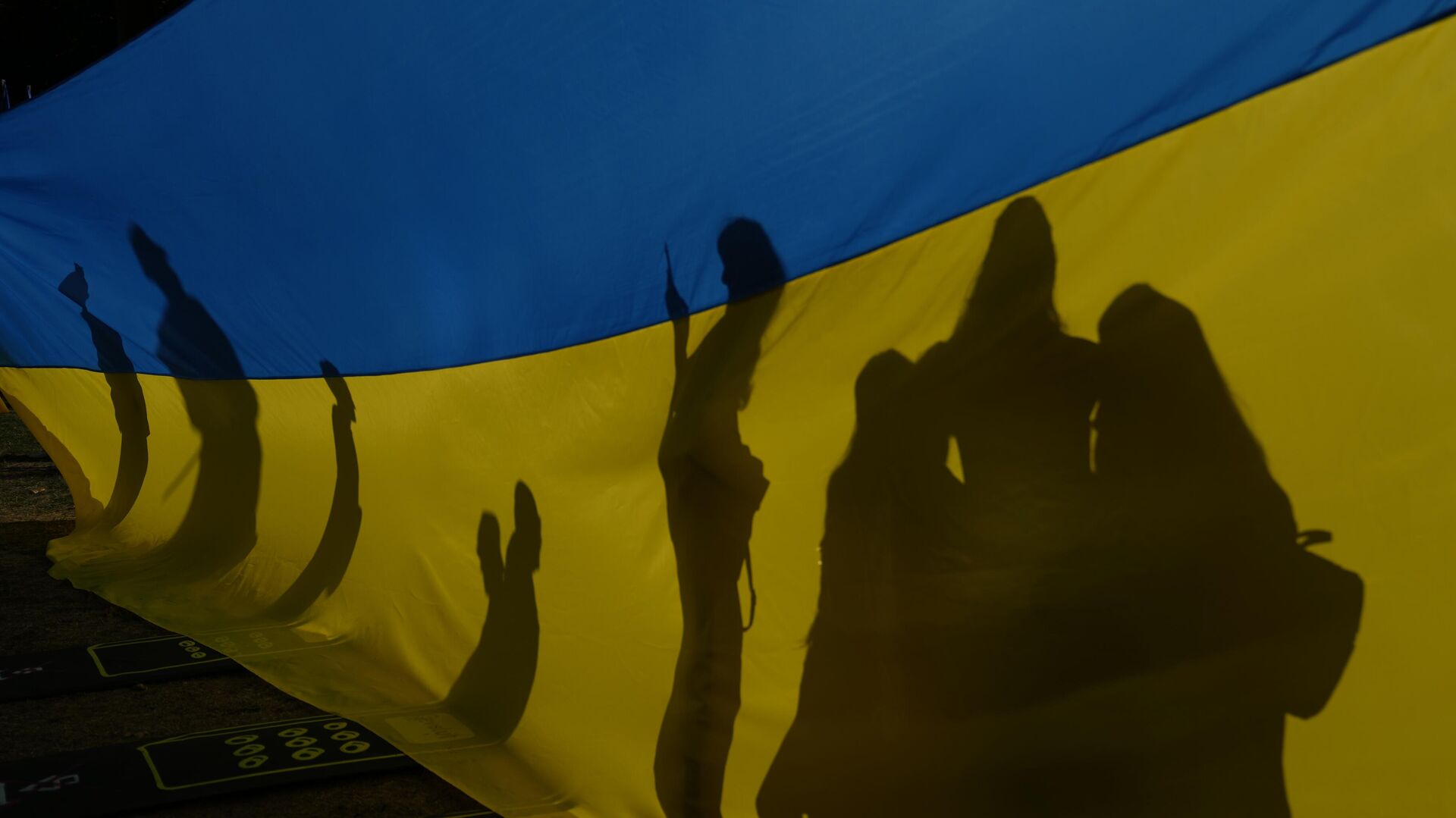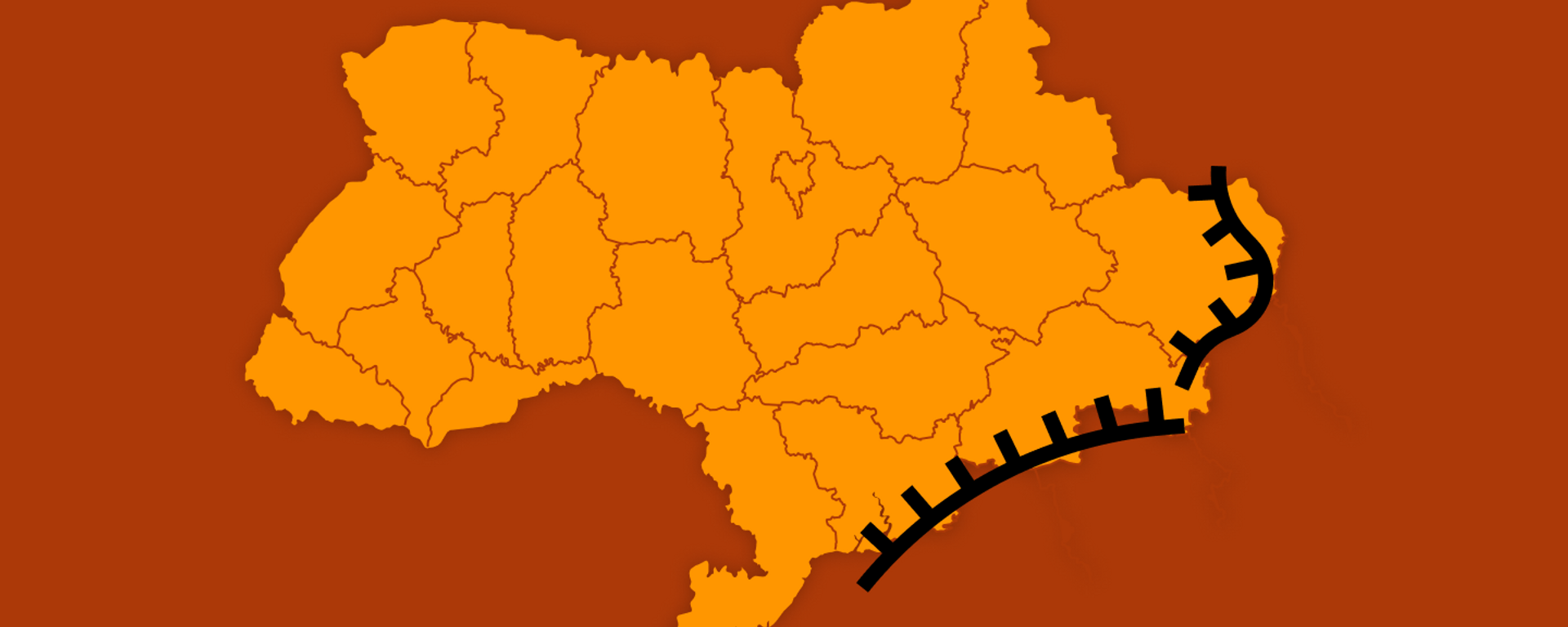https://sputnikglobe.com/20240917/syrian-terrorists-and-ukrainian-militants-form-symbiotic-relationship-1120181074.html
Syrian Terrorists and Ukrainian Militants Form 'Symbiotic Relationship'
Syrian Terrorists and Ukrainian Militants Form 'Symbiotic Relationship'
Sputnik International
Cooperation between the Ukrainian military and Syrian organization Hayat Tahrir al-Sham* (HTS) is hardly a surprise, says veteran international consultant and retired US Army Lieutenant Colonel Earl Rasmussen
2024-09-17T18:39+0000
2024-09-17T18:39+0000
2024-09-17T18:39+0000
analysis
earl rasmussen
russia
ukraine
syria
cia
hayat tahrir al-sham
https://cdn1.img.sputnikglobe.com/img/07e8/08/13/1119822137_25:0:3666:2048_1920x0_80_0_0_8fd4922e5d3f263ecd2f18a8434aca78.jpg
“If we look at HTS history, formerly they were Al-Nusra [Front]*, aligned with al-Qaeda* and they were beneficiaries of Timber Sycamore weapons coming from Libya into anti Assad rebels, into Syria along with CIA training. So, there's kind of a symbiotic type of relationship,” he says, adding that there are “CIA connections on both sides.”The objectives shared by the Syrian group and the Ukrainian militants are to “counter Russian influence” and to “weaken the Russian forces,” Rasmussen suggests.On one hand, he explains, the US is “very upset that Russia intervened” in the Syrian conflict and dashed any hopes of their groups overthrowing the government of Bashar Assad.On the other hand, there is the Ukrainian conflict where things do not go well for Kiev, with the latter now desperately looking for “other ways to kind of divert the attention of the Russians.”According to him, there are American neocons who cling to this “fantasy,” and that he believes it is a “continuation” of Washington’s desire to create problems for Russia by ousting Assad.“At the same time, [the US] have a desire to weaken Russia in the Ukraine area and weaken Russia overall. So, the joint concept that’s supported on both of them is to weaken Russia - is to divert forces away from things, to weaken Russia to ultimately obtain their objectives,” he speculates.* Terrorist organizations banned in Russia
https://sputnikglobe.com/20260215/russias-special-military-operation-in-ukraine-and-how-it-is-progressing-1105665248.html
russia
ukraine
syria
Sputnik International
feedback@sputniknews.com
+74956456601
MIA „Rossiya Segodnya“
2024
Sputnik International
feedback@sputniknews.com
+74956456601
MIA „Rossiya Segodnya“
News
en_EN
Sputnik International
feedback@sputniknews.com
+74956456601
MIA „Rossiya Segodnya“
Sputnik International
feedback@sputniknews.com
+74956456601
MIA „Rossiya Segodnya“
ukraine syrian terrorists, tahrir al-sham ukraine, ukraine syria cia
ukraine syrian terrorists, tahrir al-sham ukraine, ukraine syria cia
Syrian Terrorists and Ukrainian Militants Form 'Symbiotic Relationship'
Cooperation between the Ukrainian military and Syrian organization Hayat Tahrir al-Sham* (HTS) is hardly a surprise, says veteran international consultant and retired US Army Lieutenant Colonel Earl Rasmussen
“If we look at HTS history, formerly they were Al-Nusra [Front]*, aligned with al-Qaeda* and they were beneficiaries of Timber Sycamore weapons coming from Libya into anti Assad rebels, into Syria along with CIA training. So, there's kind of a symbiotic type of
relationship,” he says, adding that there are “CIA connections on both sides.”
The objectives shared by the Syrian group and the Ukrainian militants are to “counter Russian influence” and to “weaken the Russian forces,” Rasmussen suggests.
On one hand, he explains, the US is “very upset that Russia intervened” in the Syrian conflict and dashed any hopes of their groups overthrowing the government of Bashar Assad.
On the other hand, there is the Ukrainian conflict where things do not go well for Kiev, with the latter now desperately looking for “other ways to kind of divert the attention of the Russians.”
“The conflict in Ukraine was, in my view, provoked by Western powers. Essentially it [the West] really didn't care about Ukraine at all,” Rasmussen elaborates. “The initiative was to weaken Russia and to potentially, in people's dreams, to cause an overthrow of Putin in Russia and a puppet person then [imposed] optimally, but that's not going to occur.”
According to him, there are American neocons who cling to this “fantasy,” and that he believes it is a “continuation” of Washington’s desire to create problems for Russia by ousting Assad.
“At the same time, [the US] have a desire to weaken Russia in the Ukraine area and weaken Russia overall. So, the joint concept that’s supported on both of them is to weaken Russia - is to divert forces away from things, to weaken Russia to ultimately obtain their objectives,” he speculates.
* Terrorist organizations banned in Russia



